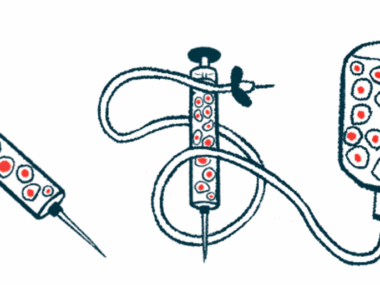Once patients find a clinical trial, they still face challenges
Participating may not be so easy, and even if you can take part, be ready to wait
Written by |

What’s the best way for people with Parkinson’s to contribute to research?
I recently talked about how there are always more questions than answers and how there must be better ways to solve our problems. I highlighted the obvious need to engineer better brain-body communications. I’ve encouraged patients to get involved with developing research in any way possible and to contribute from the critical perspective of the Parkinson’s patient.
But what is the best way to do that? Contribute money to a foundation? Participate in research? If so, should you choose observational or interventional clinical trials?
As you probably know, interventional clinical trials have a few tricky parts to keep in mind. First, it can be a challenge to find a promising study in your area. And then you have to pass eligibility requirements.
Second, most interventional studies are generally structured as either blind studies, meaning that 50% of the participants are randomly placed in a placebo treatment group to compare results with the other 50% of participants receiving the therapy under investigation. Blinded means the participants can’t control what they take and won’t know which group they’re in.
Third, the U.S. Food and Drug Administration (FDA) approval process (which is different for drugs and devices) can take considerable time, and then if the therapy is approved, there’s considerably more time before it’s available to the public.
When I tried to join a trial
Here’s a quick story from my recent experience: Last year, I found a promising medical device clinical trial on the opposite side of the country. I offered to fly there and rent housing to participate, but I wasn’t accepted. Subsequently, I met with the study’s principal investigator and offered to coordinate arrangements, including funding, with cooperation from my prestigious local medical center; the hope was that it’d become a location for the planned multisite study. I was declined again.
What else could I do? Wait. However, the projected timeline always seems shorter than the actual timeline (for the next phase, the next product or design iteration, or FDA approval, for instance). In the meantime, I could purchase the device components and build a solution to test for myself. And that’s what I did. I’ll tell more of this story in a future column.
I’ve always felt strongly that while there’s undoubtedly a need to study to learn by observing to understand, the best way to make scientific advancements is to test, retest, and improve things rigorously. Armchair philosophy is interesting, but I’m unsure how much impact it has.
When you’re the patient, you feel more urgency than the system because the clock is always ticking. Somehow, we need to get to the ground truth faster by involving more patients with testing and feedback to develop real-world solutions.
Note: Parkinson’s News Today is strictly a news and information website about the disease. It does not provide medical advice, diagnosis, or treatment. This content is not intended to be a substitute for professional medical advice, diagnosis, or treatment. Always seek the advice of your physician or another qualified health provider with any questions you may have regarding a medical condition. Never disregard professional medical advice or delay in seeking it because of something you have read on this website. The opinions expressed in this column are not those of Parkinson’s News Today or its parent company, Bionews, and are intended to spark discussion about issues pertaining to Parkinson’s disease.




Julie Lawyer
so were you trying to be in the glove study?
Dave Garrett
Hi Doc - Thank you for sharing your thoughts in this article. I’ve also found serving on patient panels to be an interesting and educational experience.